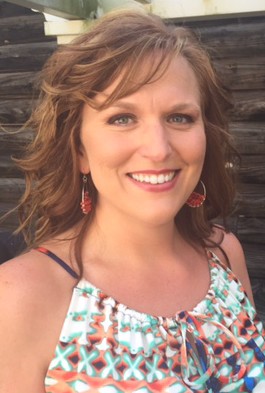I recently watched the first season of the Netflix show, “Unbreakable Kimmy Schmidt.” It’s the parody of a young woman who was kept in an underground bunker for 15 years as part of a post-apocalyptic cult. When she and three others, known as the Mole Women, are rescued, they take a trip to New York City for interviews. On a whim, Kimmy decides to remain in NYC to make a new life for herself and to discover all she’s missed. She’s naive and innocent and struggles with self-doubt.
There were many times I had to pause the show to write down a quote. While it’s a satire about how people can be easily duped by religion, in many ways it’s an incredibly accurate portrayal of how spiritual abuse affects people, women particularly. The first quote that stuck with me was when the Mole Women were interviewed by Matt Lauer. While the whole scene was hysterical, this one comment by Lauer hooked me with its truth: “I’m always amazed at what women will do because they’re afraid of being rude.”
* * * * *
A few years ago, my best friend bought me a “No” button. It says “No” in a variety of tones. It’s been an ongoing joke between us that when I struggle to say no to something I don’t want to do, I should just press the “No” button.
I’ve never been good at saying no, much less sticking to it when I do. Like many women who were raised in the church in the South, I learned to be a doormat without boundaries. I had a huge fear of being labeled as rude, offensive, and uncaring if I answered no to anything requested of me. I learned that it was basically unChristian to say no. Warped, I know. But being a good, Christian girl was all that mattered to me, so “No” was rarely in my vocabulary.
For a long time, it would’ve never even crossed my mind to say no. Even when I finally started using my “No,” I would usually back down into a “Yes.” It took me a long time to realize how worthless my “No” was and that there was no power behind it. When people figure out there’s no power behind your “No,” they’ll find a way to turn that “No” into a “Yes,” whether it’s through coercion, manipulation or bullying. As I’m sure you can imagine, my powerless “No” led to a lack of self-worth.
* * * * *
If there’s anything that will teach a person to put their money where their mouth is, it’s when parents have to teach a lesson to their children. Kids will call us out when we have a do-as-I-say-not-as-I-do attitude.
I’ve always taught my girls that they’re allowed to say no and to disagree. If they’re uncomfortable with someone touching or hugging them, they’re allowed to say no. If their friends want them to do something they don’t want to do, they’re allowed to say no. You get the idea.
I’ve also tried to teach them not to feel bad or worry about hurting someone’s feelings or making them mad when they use their no. But that’s where it gets difficult for me. Therefore, that’s where it gets difficult for my girls.
We’ve had some fast and furious, difficult lessons in saying “No” and sticking to it over the last couple of weeks.
I don’t want my girls to do things they don’t really want to do just because they’re afraid of being considered rude.
I want them to know there is weight and power behind their “No.” I want them to realize there are no strings of guilt and shame attached to their “No.” I want them to understand that saying “No” can be empowering and increase their sense of self-worth. Mostly, I want my girls to know that a good, strong “No” often paves the path to a future beautiful “Yes.”




Exactly, Rebekah. Churches tend to want pastors/leaders with the people-pleasing attitude who refuse to say NO. I, too, have had to learn this powerful word, state it, and mean it. I came to the realization that, while the church culture tends to applaud the overworked and demand more from them, they often are among those whose faith is most fragile. In fact, I’ve learned that a strong “no” is often the most faithful thing to do. Too often, we worship at the idol of Christian busyness; and that god is a cruel one. Thanks again, Rebekah, for another thought-provoking blog.